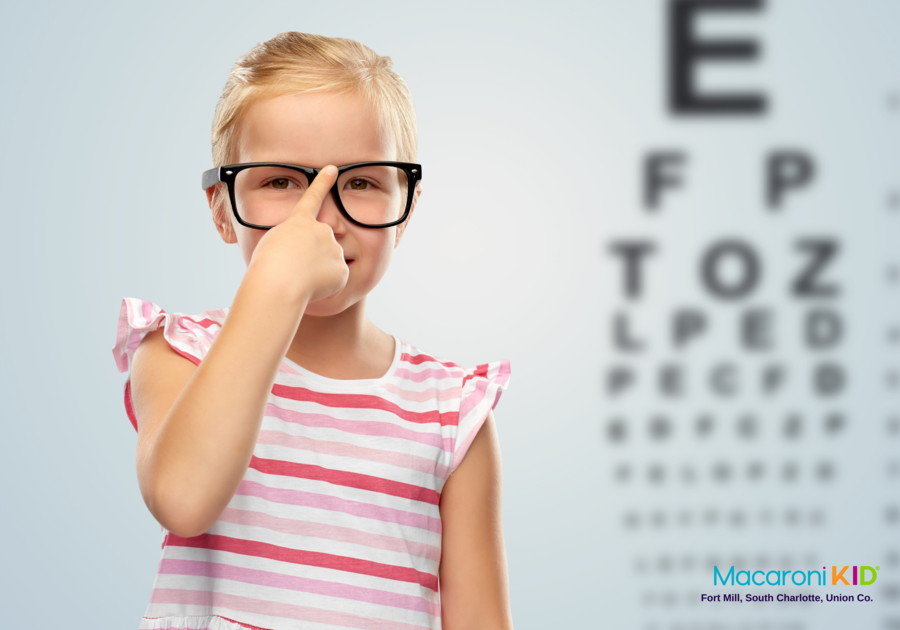It can be difficult to know exactly when or if your child is having trouble seeing - and as a mom, my experience was just that: challenging. My oldest was doing exceptionally well in school - he'd always passed the eye exams administered in school and at the pediatrician, but he was having a hard time staying focuses while participating in circle time in Kindergarten and his handwriting was a mess.
So, after consulting with his pediatrician and his teachers, we decided to take him for an Occupational Therapy evaluation. The OT suggested that, while nothing was standing out to her (he was just a very energetic 5-year-old boy), she did have some concerns about his tracking with his eyes. The first step for me, before we leaned into Vision Therapy, however, was getting him to a Pediatric Ophthalmologist.
We'd always just relied on his pediatrician for eye exams, and for most kids, that may be enough for a while. But, what we learned, is that the pediatrician wasn't examining the full scope of his vision and he needed more. Turns out, my kiddo could see distance just fine (that's what he was being tested for at the pediatrician); he couldn't see close up. For all of you with perfect vision: this means he's far-sighted.
Sure enough, we got him some awesome new specs and his behavior shifted tremendously. His handwriting got better (until we were sent home during remote learning) and he started reading with greater proficiency.
As we all head back to school this month, it's a great time to schedule those eye exams for your kiddos. If nothing else, having a baseline from which to evaluate overall eye health is important and could save you a lot of problems in the future.
A couple of key differentiators you should know as you begin (or continue along) your child's eye health journey:
- Ophthalmologist: An ophthalmologist is a medical doctor who provides eye care, such as complete eye exams, prescribing corrective lenses, diagnosing and treating eye diseases, and performing eye surgery.
- Optometrist: An optometrist is a health care professional who can provide complete eye exams, prescribe corrective lenses, diagnose common eye disorders, and treat selected eye diseases. Optometrists do not treat more complex eye problems or perform surgery.
- Optician: An optician assembles, fits, sells, and fills prescriptions for eyeglasses.
According to WebMD, some common eye problems in children may include:
- Amblyopia:Sometimes called a lazy eye, this is poor vision in an eye that appears to be normal. If untreated during childhood, amblyopia can lead to permanent vision loss or impairment in the affected eye.
- Strabismus: A misalignment of the eyes, commonly known as cross-eyed, which causes eyes to wander. Both eyes do not always aim at the same object. If one eye is misaligned constantly, amblyopia may develop in that eye. Healthy vision can be restored by patching the properly aligned eye and forcing the misaligned one to work harder. Surgery or specially designed glasses may also help.
- Refractive errors: These errors occur when the eye is incorrectly shaped and vision is blurry. The most common of these are:
- Nearsightedness, also known as myopia or poor distance vision. Nearsightedness is usually treated with glasses.
- Farsightedness, or hyperopia, is poor near-vision and is usually treated with glasses.
- Astigmatism is an abnormal curve of the front surface of the eye and is treated with glasses.
According to the Optometrists Network, the symptoms of possible vision problems in children include:
- Poor school performance
- Not wanting to go to school
- Difficulty paying attention
- Difficulty when reading and writing
- Trouble seeing information on the chalkboard
- Blurry or double vision
- Headaches or eye pain
- Taking longer than normal to complete homework


